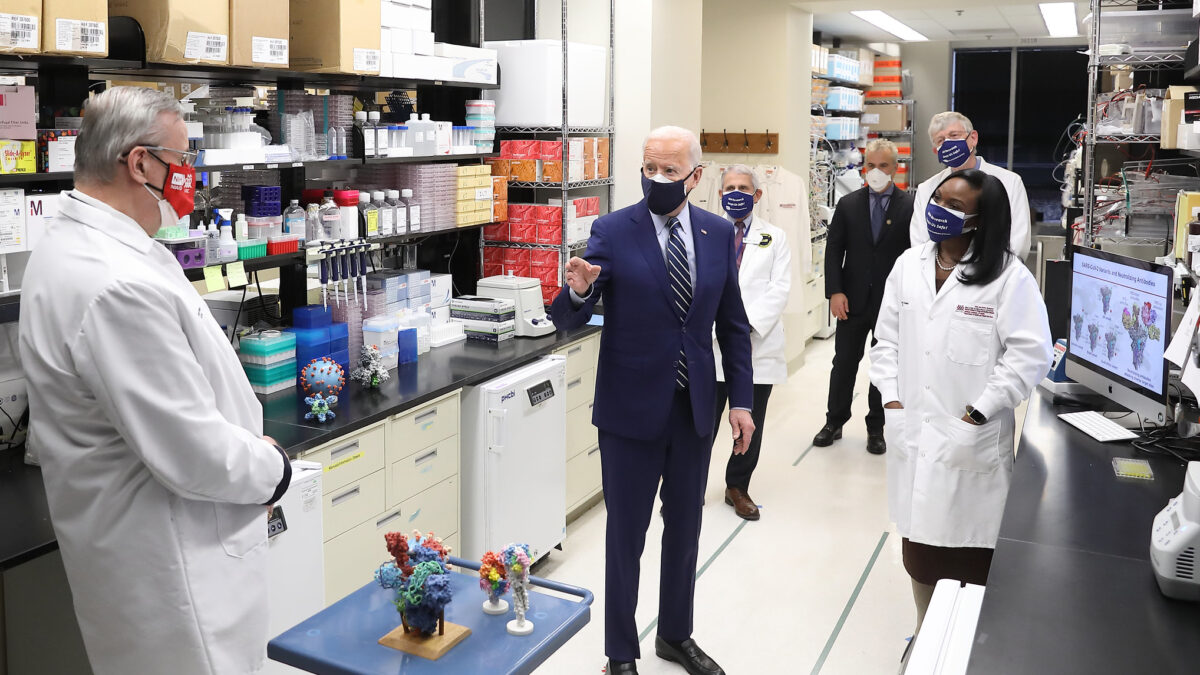From 1933 to 1945, medical scientists in Nazi Germany conducted horrific experiments on prisoners as part of their eugenic quest to create strong and “racially superior” humans.
Using the latest technology, and with few regulations, these doctors harvested unborn children, body parts, skeletons, and organs. At other times, they conducted mass sterilizations and intentionally injured or infected prisoners to test treatment options. Indeed, some of what we know about a woman’s reproductive system today is due to the detailed — and deadly — experiments Nazi Germany conducted on unwilling prisoners.
Adolf Hitler himself also oversaw the creation of Lebensborn, a German home devoted to caring for women and children of the “right” eugenic profile — light skin, blond hair, and blue eyes. With basic accommodations and health care covered, Hitler encouraged them to procreate as often as possible. In one unsettling image, children are shown sitting in front of a bright light as scientists try to lighten their skin and eye color. To Hitler’s dismay, neither the home nor his efforts to subsidize the government-preferred kind of children resulted in high birth rates.
Nazi Germany’s eugenic practices hang heavy in the minds of German lawmakers today. That’s one of the reasons Germany’s laws governing assisted reproductive technology are some of the best in the world. German law prohibits surrogacy-for-pay, bans egg donation, and governs in vitro fertilization (IVF) with the highest standard of medical care for both the mother and the embryonic child.
To avoid the creation of non-implanted embryos, and the subsequent temptation to misuse embryonic life, German law does not allow doctors to create more than three embryos in a single round of IVF. This way, women are not overwhelmed by a surplus of embryos they neither intend nor know how to use. Germany also prohibits the use of preimplantation genetic diagnosis (PGD) to select the sex or race of children.
Given the dark shadow of Nazi Germany and the eugenic practices that dictated much of its medical research in the 20th century, modern Germans recognize the immense harms of an under-regulated and unaccountable medical industry — especially one that deals with the creation, selection, and preservation of life itself. Lawmakers in the United States should heed this warning too.
There are profound moral issues with the way IVF is practiced in the United States. In many cases, it amounts to eugenics. More than 75 percent of fertility clinics offer preimplantation genetic diagnosis for genetic issues; 73 percent offer testing to select a child for his or her sex. This same technology may also allow parents to select for a child’s potential IQ or hair, eye, and skin color.
For example, The Fertility Institutes advertise eye color selection for parents undergoing IVF and previously advertised “complexion” selection for the child’s skin color. Similarly, a recent survey published in the journal Science shows that 40 percent of Americans said they would be more likely than not to select a child created via IVF based on their “intellectual aptitude.” No U.S. laws limit preimplantation genetic diagnosis in IVF, even in states, such as Arizona, Missouri, and North Carolina, that do not allow abortions for sex selection or to avoid certain genetic problems.
Why should states that rightly prohibit abortion to eliminate a child based on its sex allow fertility doctors to use IVF to discard embryonic life for the same reason? One prominent example of this is Paris Hilton. In her pursuit of a little girl, Hilton created 20 distinct, living, human beings with IVF. All 20 were male. Despite her disappointment, Hilton said she would try again for a girl in a second round of IVF. The fate of the remaining embryos was not disclosed.
German law shows it’s possible to protect unborn human life and prohibit eugenics without prohibiting all uses of IVF. People on both sides of the aisle should support similar common-sense regulations of the fertility industry right here in the United States.
Doing so would not only be morally right, but politically astute. According to a recent poll from Scott Rasmussen, when Americans are given the facts about how IVF is often practiced in the United States, 80 percent of people think IVF services should remain available for couples who cannot otherwise have children. Twenty-four percent think “leftover” embryos should be destroyed, suggesting that 76 percent of people favor another option for these embryos.
Conservatives have been on the back foot on IVF since the Alabama Supreme Court’s ruling in LePage v. Center for Reproductive Medicine came out in mid-February. But this polling suggests that pursuing legislation that prohibits the destruction of embryonic life in IVF provides an opportunity to make that weakness a strength.
One approach is to prohibit the destruction of embryos. In 1986, Louisiana passed a law prohibiting the intentional destruction of embryos in IVF and deemed them legal persons. Although a step in the right direction, such a law does nothing to reduce the surplus of embryos typically created in a round of IVF. Such parents must still choose between indefinitely freezing their embryonic children — which can cost hundreds of dollars a year — or, as some have reported, discarding the embryos in another state.
To address mass embryo destruction in the fertility industry, lawmakers should first look to advance policies like those in Germany that limit the surplus creation of embryos and prohibit eugenic tests to guess an embryo’s sex, IQ, physical features, or genetic makeup.
Germany knows how quickly things get out of control when an under-regulated and unaccountable medical industry is left to its own devices. Lawmakers in the United States should learn from their mistakes and commit to governing the fertility industry with the highest medical and moral standards.









